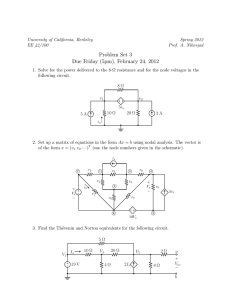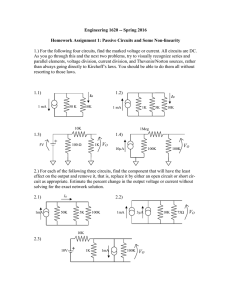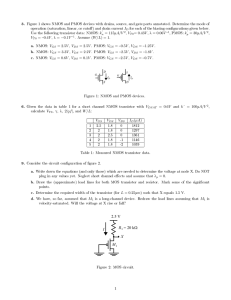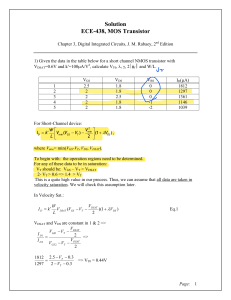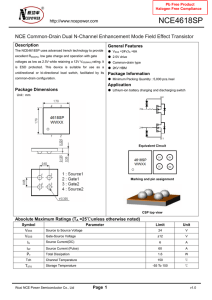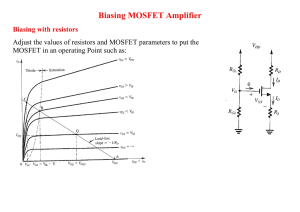Vout Vin
advertisement
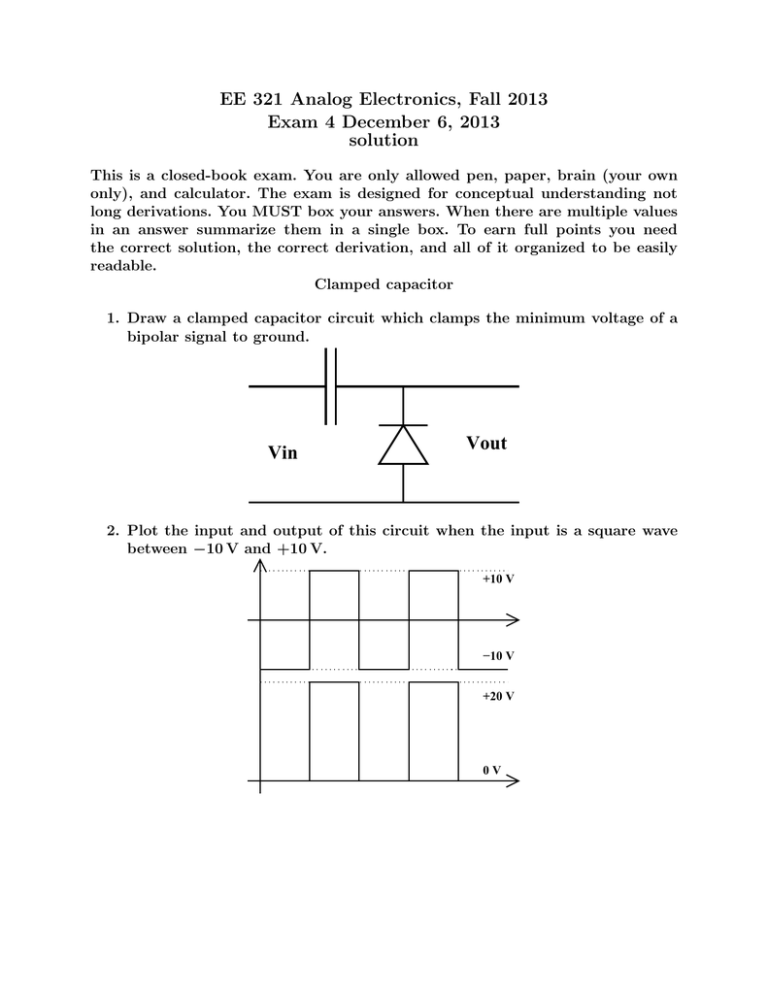
EE 321 Analog Electronics, Fall 2013 Exam 4 December 6, 2013 solution This is a closed-book exam. You are only allowed pen, paper, brain (your own only), and calculator. The exam is designed for conceptual understanding not long derivations. You MUST box your answers. When there are multiple values in an answer summarize them in a single box. To earn full points you need the correct solution, the correct derivation, and all of it organized to be easily readable. Clamped capacitor 1. Draw a clamped capacitor circuit which clamps the minimum voltage of a bipolar signal to ground. Vin Vout 2. Plot the input and output of this circuit when the input is a square wave between −10 V and +10 V. +10 V −10 V +20 V 0V Diode circuit analysis 3. Carefully plot Vout as a function of Vin for this circuit, for −10 V < Vin < 10 V. Vin 2R Vout R 4. Using two parallel diodes and a summing inverter design a circuit which limits the input voltage to the ±0.7 V range and shifts/amplifies that range to 0 − 2.8 V range appropriate for inputing into a microprocessor ADC. MOSFET amplifier 2 A NMOS has kn′ W = 1 mA/V , and Vt = 1 V. VDD = 15 V, VSS = 0 V. L 5. If it is used to build a common-source amplifier with VG = 3 V pick RD to produce a gain of -10. Avo = −gm RD = − 2ID RD VGS − Vt We have VGS = 3 V, and assuming saturation mode ID = 1 2 kn′ W L (VGS − Vt )2 = 0.5 × 22 = 2 mA Then re-arranging the expression for the gain RD = − Avo (VGS − Vt ) 2ID = 10 × 2 2×2 = 5 kΩ MOSFETs at DC In the following assume k′ W = 1 mA/V2 , Vt = 1 V, voltage at top of 15 V, and L voltage and bottom of 0 V. In each case obtain iD , all voltages, and mode of operation. 6. Do the analysis for this PMOS circuit 5K We see that vSG = 5 V. Assuming saturation mode we get 1 (5 − 4)2 = 8 mA 2 which produces vD = 8 V which is less than the gate voltage. Thus saturation mode is confirmed. Answer is then iD = 10K 1K vG = 10 V vD = 8 V vS = 15 V iD = 8 mA 7. Do the analysis for this NMOS circuit We have 10K 1K vGS = VG − iD RS and then, guessing saturation mode, iD = 1 2 kn′ W L (vGS − Vt )2 = 1 2 kn′ W L (VG − iD RS − Vt )2 Inserting numbers in units of kΩ and V will resulting in a solution for iD in mA. 2iD = (4 − iD )2 5K 1K I guessed iD = 2 mA. Now the values are iD = 2 mA VG = 5 V VS = 2 V VD = 13 V


